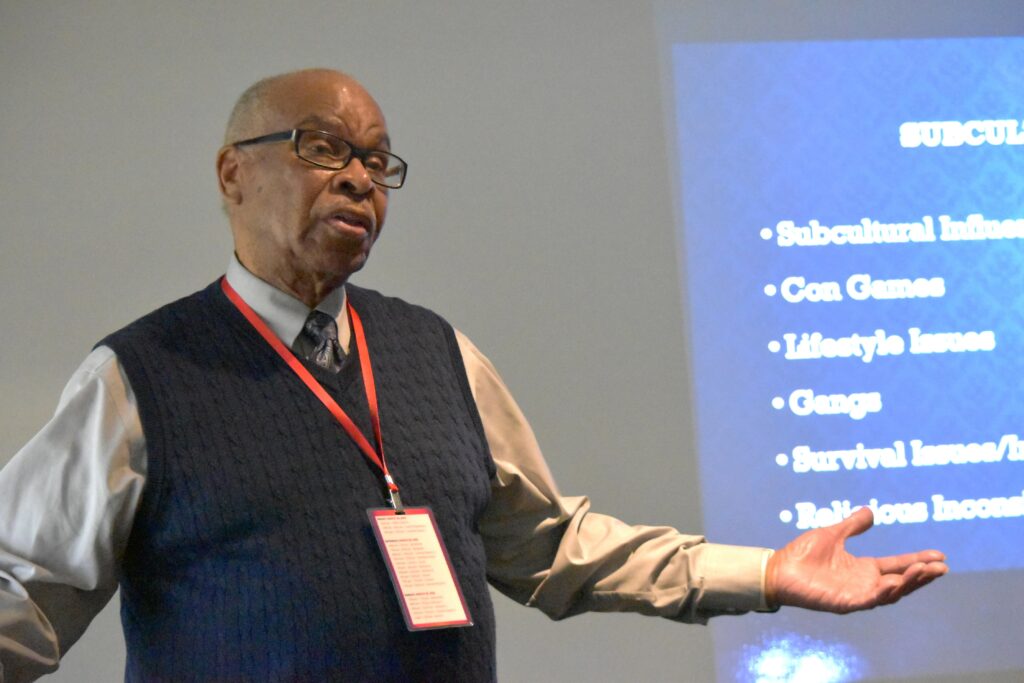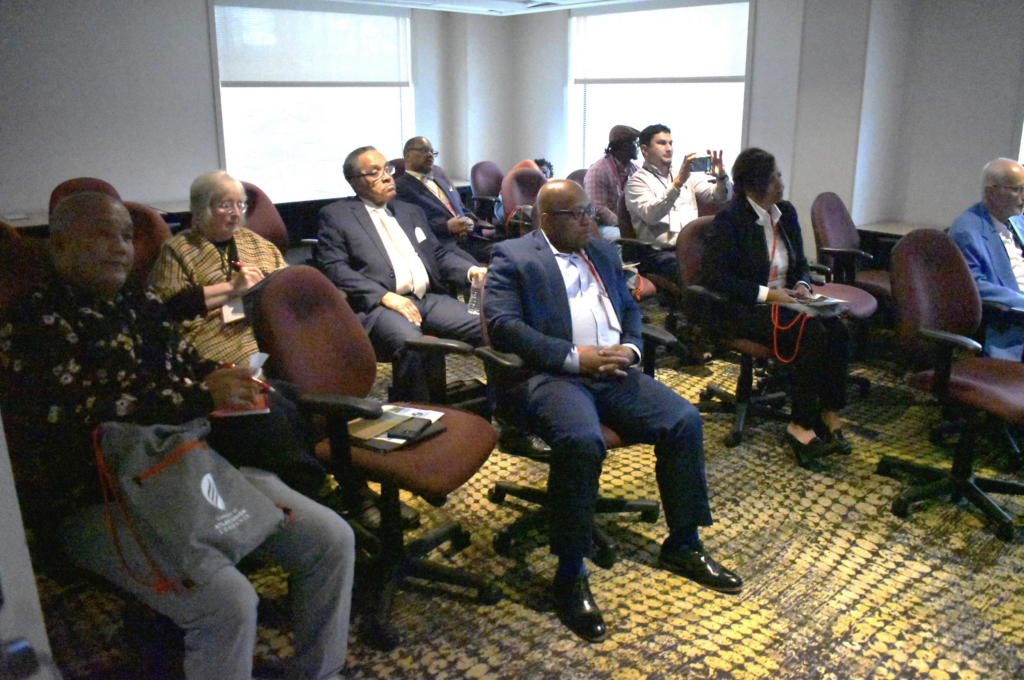Prison Ministries Is More Than Visiting Inmates in Jail, Expert Says
Cleveland Houser shares tips on how to serve detained people once they are freed.
April 9, 2025 | Silver Spring, Maryland, United States | Marcos Paseggi, Adventist Review
Seventh-day Adventist prison ministries needs to be about much more than just stopping by to visit inmates and assisting them while they are detained, said Cleveland Houser, Prison Ministries coordinator for the North American Division and an expert with decades of experience as a prison chaplain and counselor. As part of the 2025 Atlantic Union Conference’s 2025 SEEDS Festival of the Laity in Stamford, Connecticut, United States, Houser discussed how to serve inmates who leave custody so they can become an integral part of their communities.
“In my years working with inmates, I have learned to be very respectful of incarcerated men and women,” said Houser, who has served as an Adventist pastor and prison chaplain in Tennessee, United States, for many years. “If you respect people, you get the same thing back. . . . It’s so essential to treat people right no matter where they are.” And this attitude is key, he said, as Adventist prison ministries work to better serve and meet the needs of those who are or were part of the correctional system.

Cleveland Houser, Prison Ministries coordinator for the North American Division, discussed how to serve inmates who leave custody so they can become an integral part of their communities. [Photo: Marcos Paseggi, Adventist Review]
Demographic Issues
There are also complex custody demographic issues regarding the incarcerated population, Houser emphasized. “For instance, 80 percent of detained citizens have a history of substance abuse,” he reported. “Twenty percent are mentally challenged, and detained citizens are two to four times more likely to be bipolar, schizophrenic, or suffering from depression or PTSD [post-traumatic stress disorder].”
Other challenges also exist, Houser acknowledged, as 1.2 percent of men and 0.9 of women detained have HIV/AIDS. Also, 18 percent have hepatitis C, which is about 10 times higher than the general population. Finally, suicide and overdoses are the leading causes of death in prison, followed by heart disease.
Toward a Successful Community Transition
Despite all these challenges, Adventist prison ministries can make a difference in the lives of inmates who leave the system and return to society. Houser’s advice is to start working with them through the prerelease phase and then support them during the reentry and transition period, with the goal of retention as useful agents in society.
Several factors can help former inmates experience a successful transition out of the correctional system, Houser explained. “Healthy, balanced relationships between the returning citizen [and] their families, friends, supervisors, [and] coworkers; and church fellowship can [help] make a successful community transition,” he said.

One of the groups that listened to Cleveland Houser on how to move from custody to community. Houser led several breakout sessions during the Festival of the Laity. [Photo: Marcos Paseggi, Adventist Review]
A spiritual foundation can also be critical. “We recognize that successful change is fueled by the power of God, and we want to give every returning citizen an opportunity for spiritual growth,” he said.
Many former inmates need a place to live, clothing, health-care assistance, and to be ready for job interviews, Houser shared. They also need mental health support. “Many of them have repressed anger and need anger-management help, a referral network, and access to AA [Alcoholics Anonymous] and NA [Narcotics Anonymous] programs.”
Finally, support groups, family reunification initiatives, and availability of mentors can also help them become useful agents in the community. “Some of them will need one-on-one counselling or literacy classes or classes during which they can learn various life skills,” Houser said.
Developing Positive Attitudes Toward Jesus and the Church
How should Christians react as they welcome and embrace former inmates in their congregations? Houser called attendees to remember that Jesus identified with every returning citizen as a child of humanity. Houser explained that Jesus sees them as members of the family of God. They are His brothers and sisters. “Jesus accepts them without reservation, regardless of their history or behavior,” he said. “He is forgiving, with no strings attached.”
The church, on the other hand, must strive to avoid being hypocritical, snobbish, or self-righteous. “Never feel that you are the change agent. That is the work of the Holy Spirit,” Houser emphasized. “And please, never ever ask them, ‘Why were you in prison?’ ”
On the contrary, Houser said, a local church embracing a former inmate must be loving, compassionate, and understanding. “We must accept them for who they are, remembering that they are still in God’s workshop, just as we are.”
Houser also highlighted the importance of helping former inmates integrate into the lifestyle of the church. “Engage them in the activities and ministries of the church,” he suggested. “When they commit to something, the relationship has better chances to work. So let them collaborate in your ministries. And never refuse to shake their hands or sit next to them.”